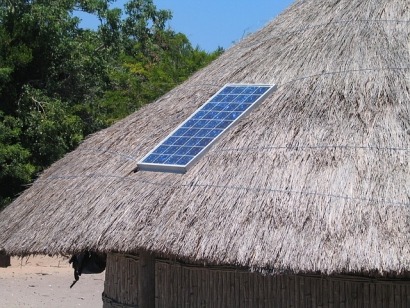
Renewable energy companies play a critical role in helping people in immediate need. These businesses can provide reliable, sustainable and affordable energy solutions to underserved communities that lack access to necessities such as clean water and health care.
Schneider Electric has helped provide five million people with electricity since 2016 by donating energy equipment. Kube Energy builds solar farms and sells green energy to humanitarian aid organizations and nearby communities. Organizations like NORCAP — which the Norwegian Refugee Council operates — recruit energy experts to advise humanitarian aids on installing renewable energy sources.
Puerto Rico’s 2017 Hurricane Maria is a perfect example of how disasters impact energy infrastructure. When the storm destroyed the island’s power grid — which was almost entirely dependent on fossil fuels — many towns went without electricity for nearly a year.
People decided to rebuild using renewable energy sources. Renewable energy companies donated solar microgrids to power communities, giving rise to solar-powered washing machines and lights. These changes allowed those most affected by the disaster to regain some semblance of normalcy in their lives.
According to the United Nations, over 700 million people are without electricity, with most of them living in sub-Saharan Africa and South Asia. These communities can’t power basic appliances like lights and electric cookstoves, which significantly impacts daily life.
It’s impossible to refrigerate vaccines without electricity, leading to increased death rates from preventable diseases. Hospitals cannot power generators or EKGs. Being without power also makes it hard to access clean water or indoor heating, often causing people to use charcoal cookstoves or start fires indoors. This practice has profoundly adverse effects on lung and cardiovascular health.
Humanitarian aid workers — often with the help of funding, equipment donations or advice from renewable energy companies — can provide solutions to the hardships brought on by disasters and displacements. Workers can install solar panels in rural areas, giving communities a renewable, accessible form of electricity. These panels may power lights, air conditioners, phone chargers and more, and solar-powered pumps can draw clean water from wells and water tables.
A major advantage of solar panels is that they can function independently of major energy grids, bringing light to the darkest, most remote spots on the map. Similarly, wind turbines can generate power in any rural area with strong winds. Unlike fossil fuels, nobody can sequester the sun and wind — everyone has access to these resources to some degree.
Additionally, renewable energy sources don’t contribute to climate change or pollution. This is a crucial benefit for underserved communities, many of which already bear the brunt of intense droughts, poor air quality and frequent natural disasters.
Providing communities with power does more than turn on the lights. It offers an escape from poverty through better education, improved health care or advanced agricultural technology like irrigation systems and heaters. It allows people to look beyond their primary needs of food, shelter, warmth and clean water.
Street lights may improve safety, letting women and girls leave their homes at night. Indoor heating means people can spend less time looking for firewood. Lights allow children to study or learn to read after the sun goes down.
Humanitarian aid workers often focus on providing food and shelter in a crisis. While these are critically important, so is electricity — it allows people to meet their basic needs many times over and secures a better future for them in the process.

